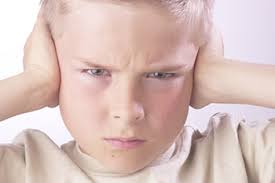The Role of Punishment as a behaviour correcting tool
It is interesting to
see people trying to mould behavior patterns in kids by strategic use of punishment.
However I have my reservations about the efficacy of such a tool, especially in
small children.
Essentially punishment
should be an instrument of correcting behavior however we often reduce it to a mere power wielding weapon to assert our
authority over children and make them conform by
creating a dread of ensuing punishment.
And the result, is merely to scare the child out of his wits
into following a set line of behaviour without adding anything to his
understanding of ‘right’ and ‘wrong’. This may work but sometimes
such children grow up as timid , unquestioning adults . That is why the role
of punishment seems limited to me. However since punishment of some kind is at times the only option , a few things
can be kept In mind:
·
 Firstly , for punishment to
have any impact , it should be seen as such by the child. A 5 year old is unlikely to know he is being
punished faced with a screaming parent. All he sees is an angry face and hears
a loud voice --- he is not ‘listening’
or understanding…he is merely dealing
with an angry tirade and trying to shut off the noise.Calmly explain how you
want him/her to behave.
Firstly , for punishment to
have any impact , it should be seen as such by the child. A 5 year old is unlikely to know he is being
punished faced with a screaming parent. All he sees is an angry face and hears
a loud voice --- he is not ‘listening’
or understanding…he is merely dealing
with an angry tirade and trying to shut off the noise.Calmly explain how you
want him/her to behave.
·
At any time punishment
should be in proportion to the age of the child and gravity of the situation.
·
Hitting the child as punishment is a sure sign of the parent’s helplessness .The children
recognize it as our last ditch effort of trying to get our way.—and often push
their limits just to see how we would react.
·
Any form of punishment that entails physically distancing the
child from you for a period of time is
often construed as rejection by children who might feel that you are using it
merely as an excuse to get rid of him/her.
·
Do not play upon the child’s fears. A child of 6 who is afraid
of the dark and is made to sleep without
a light as punishment will only become
more nervous.The idea is not to “teach
him a lesson” but to teach that what he did was wrong how it would affect
others around him and what he should remember in the future.
·
Even when punishment is the only recourse, have a face saving
device ready so he/she could muster up his/her lost dignity. Tell them how they
can make amends to right the wrong they have done. Remember the aim should not
be to humiliate the child but to make them a better person.Even their smallest
efforts at this should be appreciated.
·
Be approachable. Create
an environment where the kids are not afraid to come and tell you when they
have done something wrong. If you blow your fuse the minute you catch them ,
they’ll start hiding things and lying to
you ---so in fact –in trying to solve one problem we have created another i.e. lying.
·
Do not ‘brand’ the child. Calling the child ‘liar’, ‘thief’, and
‘cheater’ etc only makes the child more defiant and he will stop making any
effort to change a faulty behaviour pattern since you have already given him a
name tag.
·
N o matter what they have done hear them out and do not rush to judge them and punish them
.
·
And lastly, Reassure them
that you will love them , no
matter what--- that gives the child the motive for improvement.
I’ll be back in the next year .Till
then…Wish you all a merry Christmas and a Happy new year !!!
